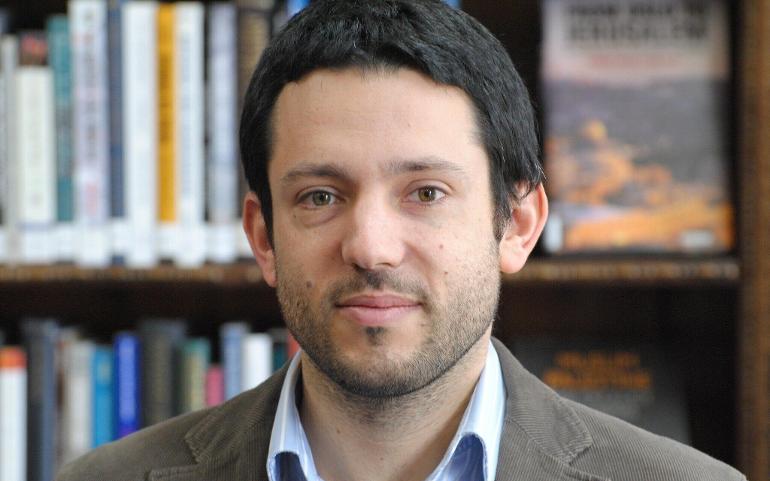Epidemiologist Michael Edelstein. (Courtesy: Michael Edelstein)
Giving rare insight into how long COVID impacts people, preprint study finds just a single long COVID symptom can reduce sense of wellbeing by more than 10 percent
By NATHAN JEFFAY
18 October 2022
Long COVID is dealing a serious blow to the sense of well-being of millions around the world, according to a first-of-its-kind Israeli study.
A research team led by Bar Ilan University, together with affiliated hospitals in northern Israel, found that just a single long COVID symptom can reduce people’s sense of their wellbeing by more than 10 percent.
While long COVID — lingering symptoms following infection with the COVID-19 virus — is anecdotally common, there is little research exploring the extent to which it constitutes a challenge to wellbeing, as opposed to a bearable discomfort.
The new study used a well-established questionnaire for subjective wellbeing that was developed by the World Health Organization. It found that with each symptom people suffer, the sense of wellbeing reported fell further.
Those who experienced three disparate symptoms — common among long COVID sufferers — reported a sense of wellbeing that was 30% lower than people of a similar age and social demographic who don’t suffer from long COVID.
“If you imagine losing a third of your sense of wellbeing as a result of long COVID symptoms, this suggests they are having a very real, sustained and profound impact on the wellbeing of many around the world,” lead author Prof. Michael Edelstein told The Times of Israel.
“The big takeaway message is that the symptoms people experience are not just things they report without suffering much from them — as some suspected — but that they can also have profound effect on life and wellbeing.”
The authors state in their article that “this is, to our knowledge, the first study to disentangle the effect on the subjective wellbeing of the most commonly reported symptoms post COVID-19.”
On the positive side, the study indicates that symptoms which are more physical in nature don’t have the same long-lasting effect on wellbeing. Once patients passed 12 months following infection, researchers ceased to detect significant harm to wellbeing from physical symptoms including muscle weakness and muscle pain.
The study, which is still undergoing peer-review but has already been published online, analyzed the wellbeing of 2,295 people, 576 of who were infected with the coronavirus.
Looking at a time-frame of 3-18 months following infection, the researchers found that sleep disorders appear to reduce the sense of subjective wellbeing by some 11.5 percentage points, confusion and lack of concentration by 10.7 percentage points, and fatigue by 7.7 percentage points.
Edelstein said that while it’s hard to put a figure on loss of wellbeing, the statistics strongly suggest it is being seriously harmed, and indicate that the challenge presented by long COVID to health authorities around the world is multi-faceted.
The effects are likely to span from care for physical symptoms to increased pressure on mental health services in the coming years, he said.
“The idea behind this paper is that there has been mounting evidence that a high proportion of people report symptoms after initial infection,” Edelstein stated.
“Criticism of this research on the incidence of long COVID has noted that it reported symptoms but didn’t explore how it is actually affecting peoples lives, so we set out to answer this question,” he added.
“Long COVID is going to be a public health burden in the months and years ahead, so it’s important to understand how it impacts people.”
